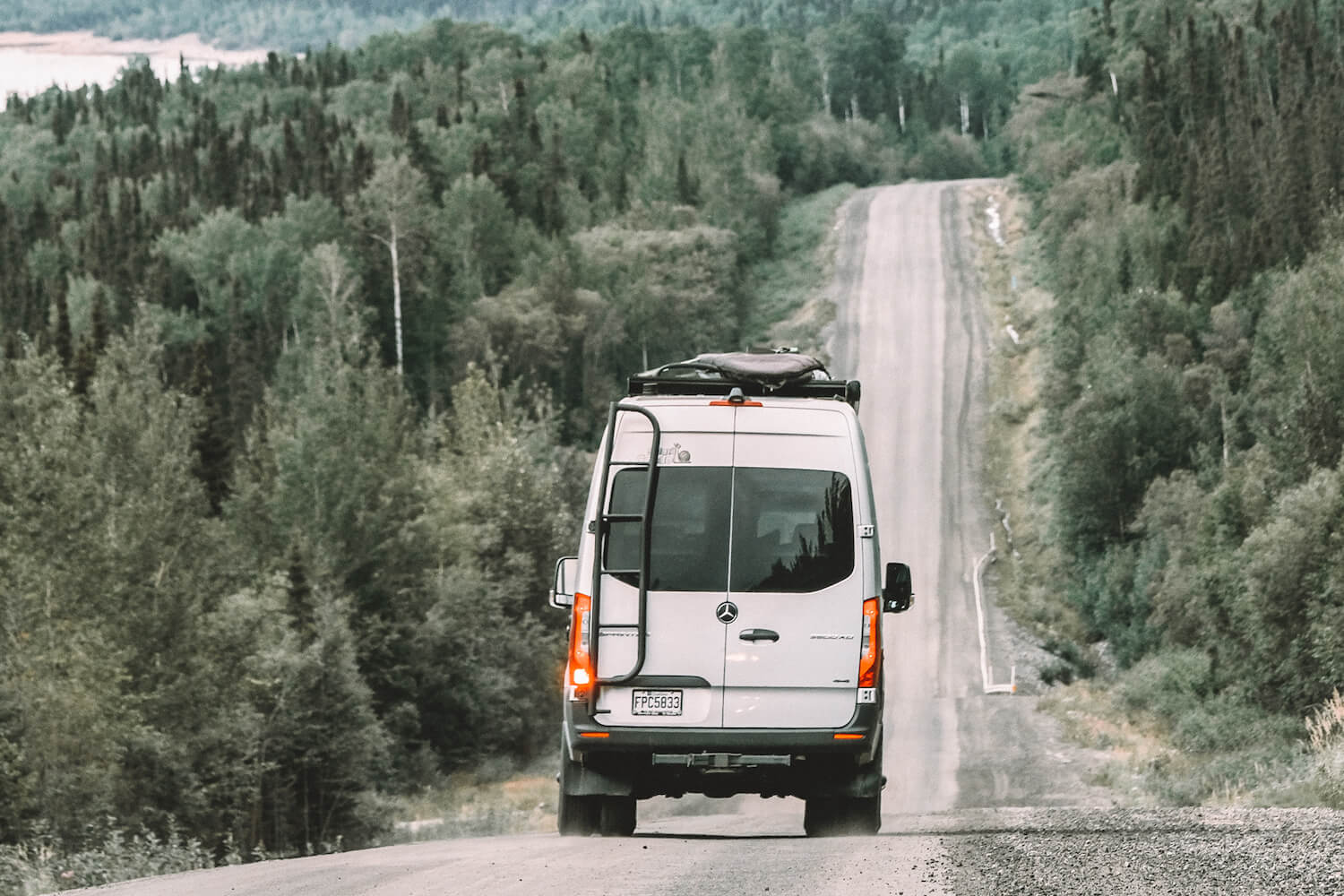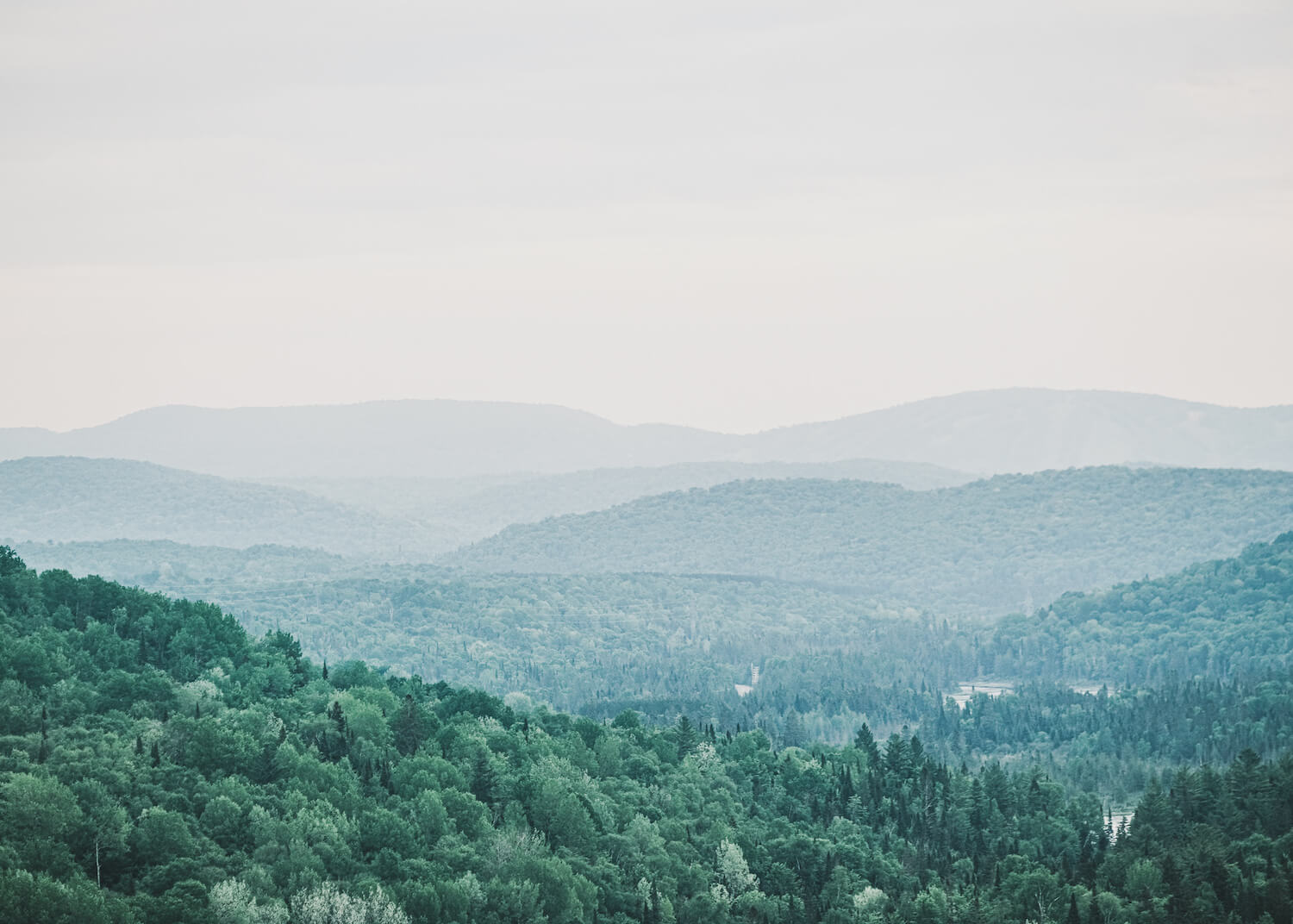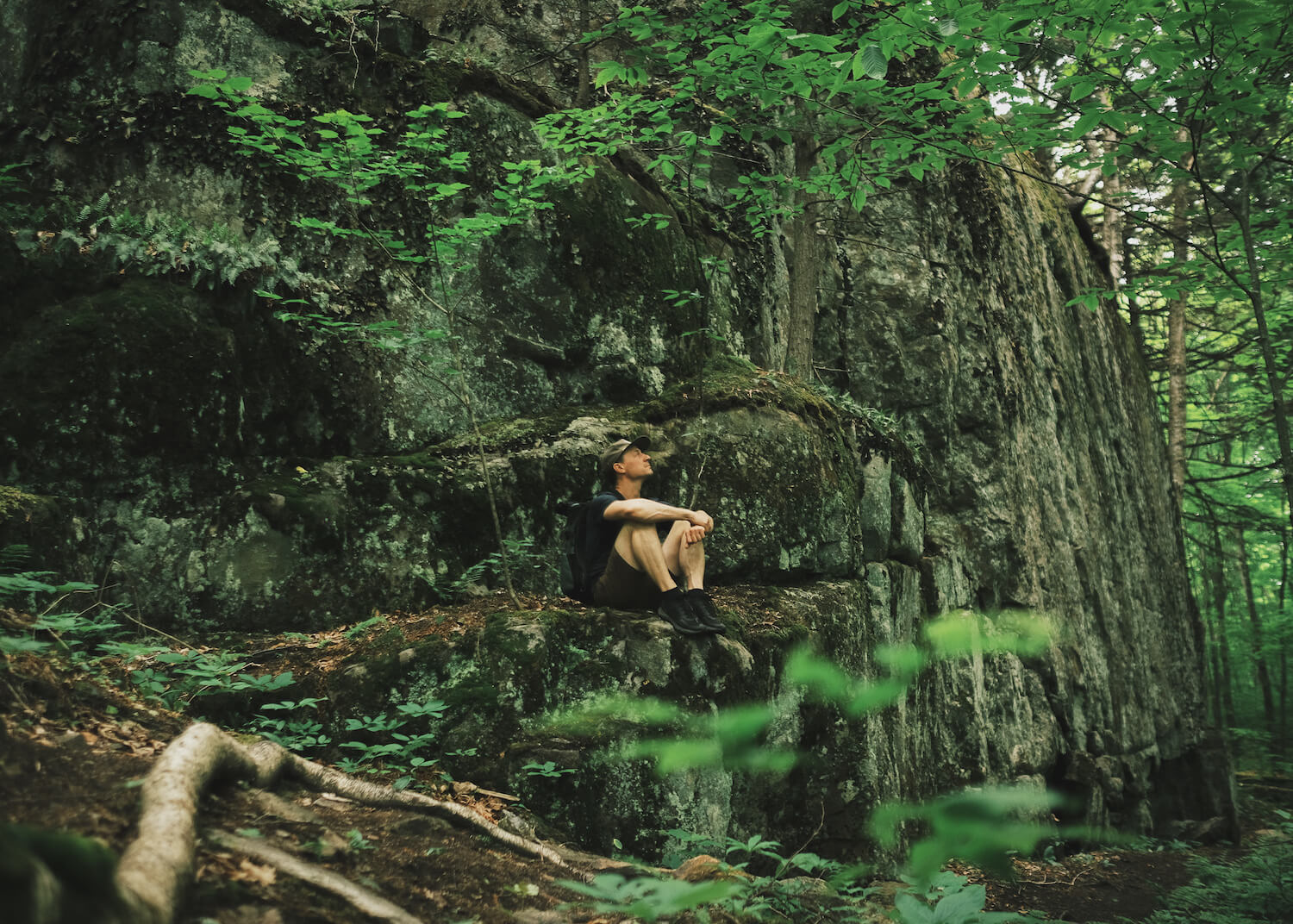Vanlife is often recognized for its more minimalist and environmentally conscious lifestyle.
However, living on the road also means daily trips in our minivans, campers or sprinters to get to the next destination. As all road trips involve gas consumption, it is important to be aware of our environmental impact in order to reduce our carbon footprint to a minimum. By compensating your emissions with Carbone Boréal, you are making a significant contribution to the conservation of the natural world around you.
Carbone Boréal
Carbone Boréal is both a research infrastructure overseen by UQAC and a carbon compensation program open to all. This system allows government, companies, but also individuals to offset their greenhouse gas emissions through the planting of trees.
“We plant trees every year or so and then these trees counter balance carbon. Depending on people’s needs, we assign them enough trees to capture the carbon equivalent of the emissions they want to offset,” says Sylvie Bouchard, research coordinator for Carbone Boréal and the Eco-Counsel Chair.
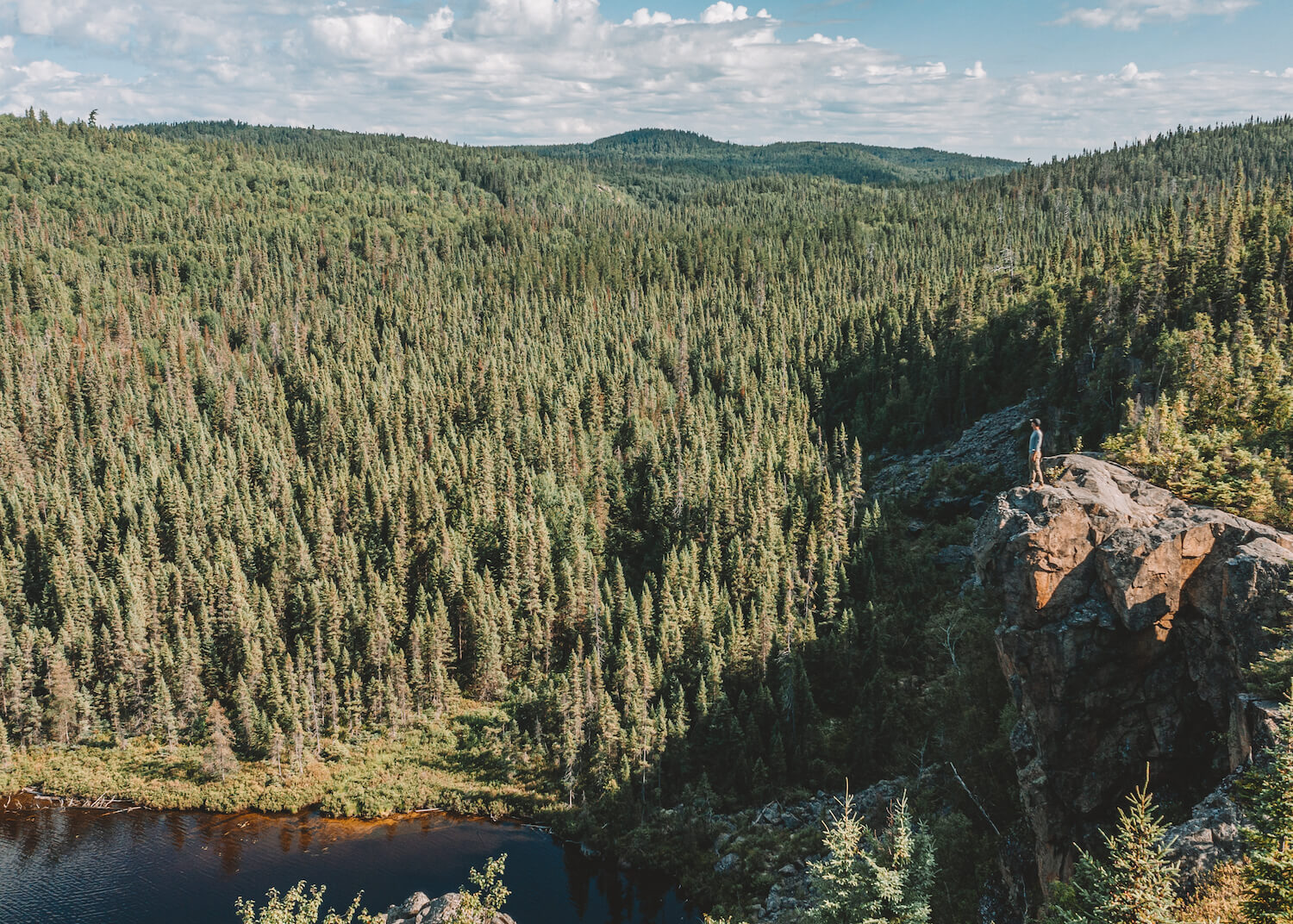
What is unique about Carbone Boréal is that in addition to reforesting naturally bare areas of Quebec’s boreal forest, these plantations store some of our greenhouse gases while serving as a research device in this field. The more we compensate, the more the organization can find better ways to reduce our emissions.
“We plant hundreds of thousands of trees, but we don’t just plant them any old way. We plant them as research devices according to the questions we ask ourselves about the forest of tomorrow, about forest adaptations to climate change or about how trees can sequester more carbon,” explains Sylvie Bouchard.
Carbon Compensation 101
There are three main principles that have a concrete impact on climate change. By reducing our greenhouse gas emissions, mitigating the effects of past or unavoidable emissions, and adapting to climate change, we can reduce our environmental footprint.
By burning gas during our van road trips, we contribute to the emission of CO2 into the atmosphere and therefore, global warming. Since forests can capture up to 25% of the carbon emissions caused by various human activities, Carbone Boréal’s tree plantations allow us to actively participate in the fight against climate change.
Carbon compensation is a kind of exchange between you and the organization to allow them to capture the emissions produced in excess by driving your van. The goal is to cancel the effect of these gases in the atmosphere by using trees to absorb the excess CO2.
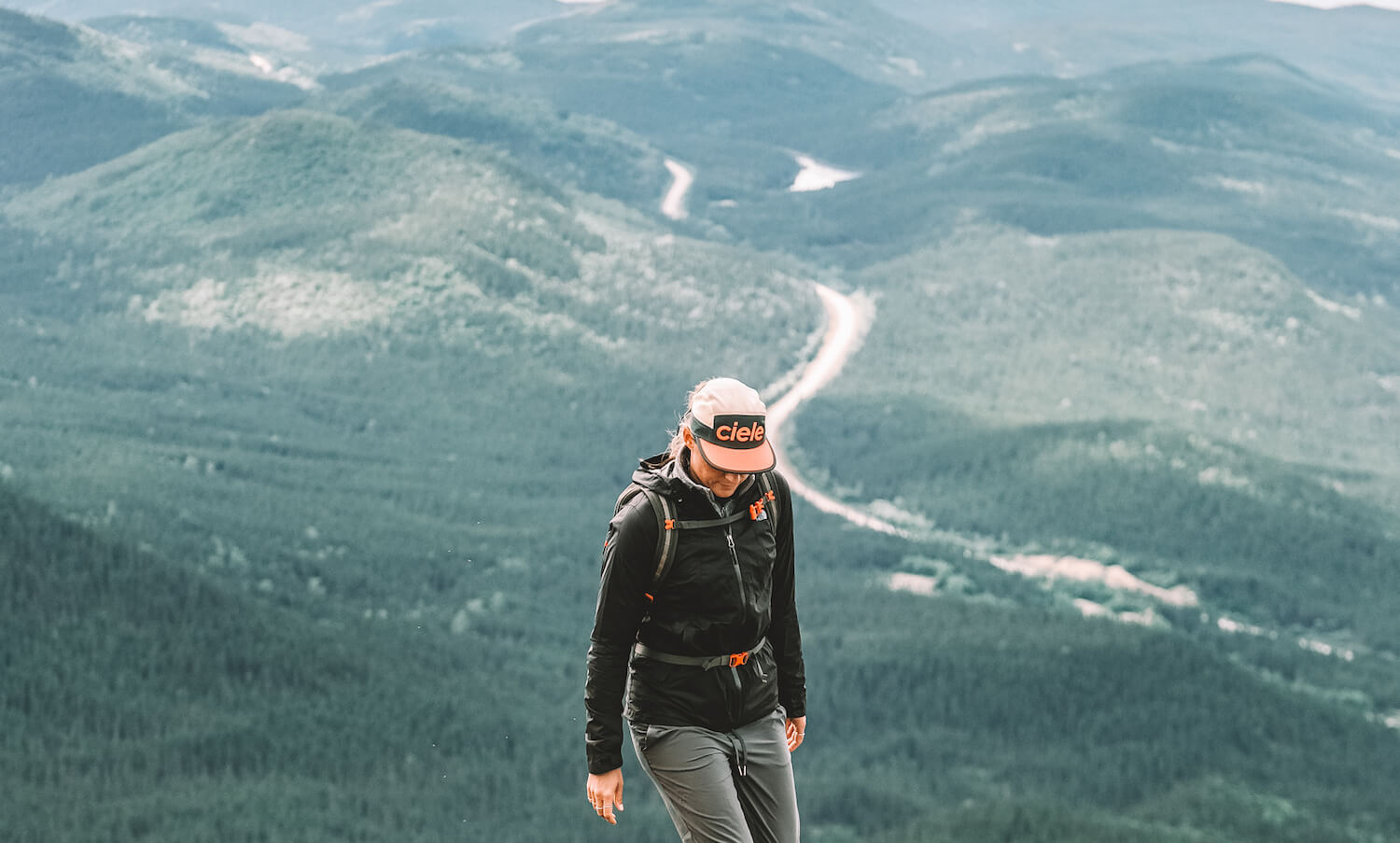
How to reduce your carbon footprint on the road
It couldn’t be easier for vanlifers to offset the emissions associated with their latest road trips. “Obviously, option #1 is our preferred option, which is reducing [emissions] as much as possible. First and foremost reduction, but for the emissions that we are not able to reduce, at that point we can at least compensate them. So, Carbone Boréal’s trees photosynthesize and in doing so, the carbon dioxide is captured by the leaves which then releases oxygen,” says Sylvie Bouchard.
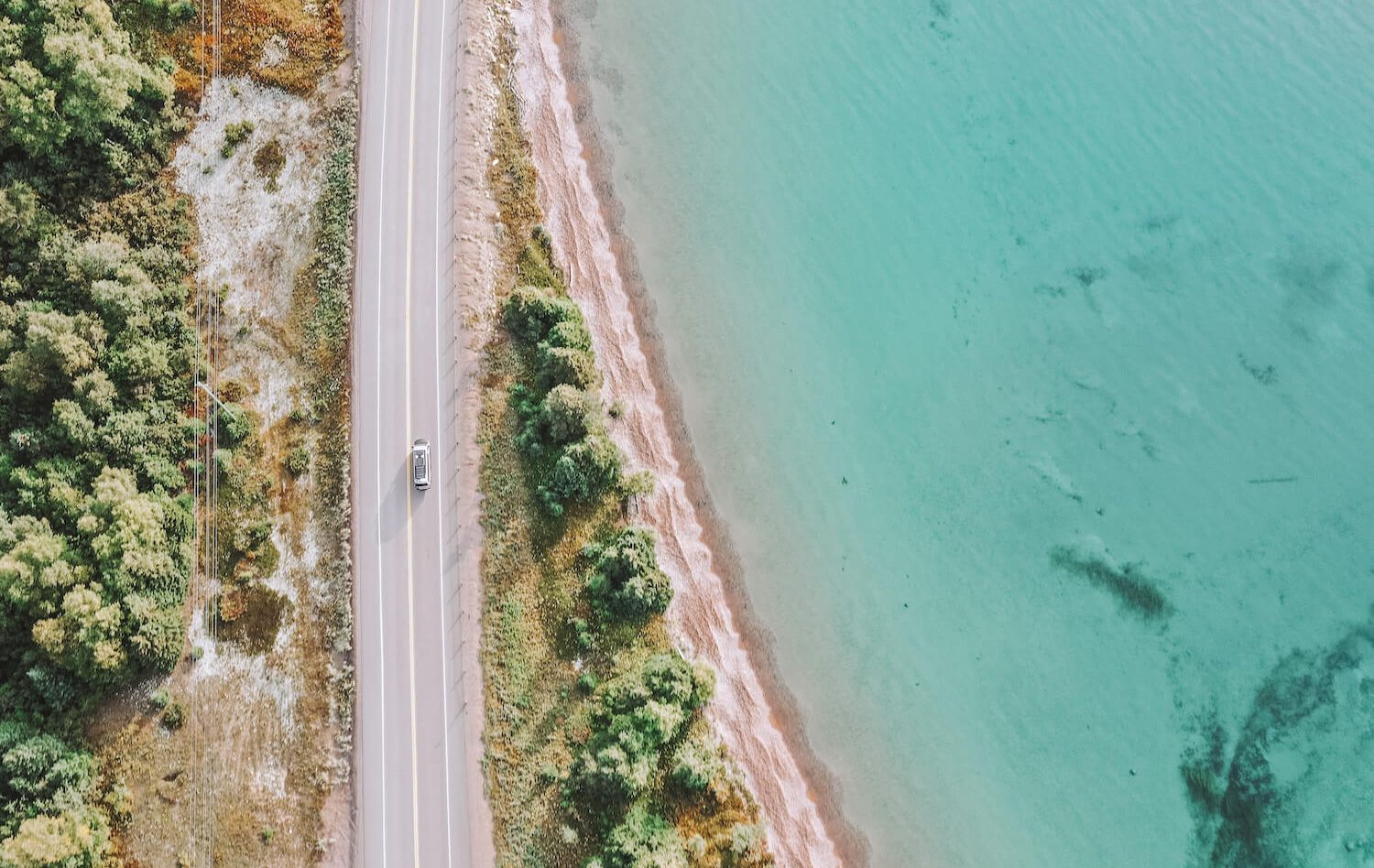
On the organization’s website, we can make a donation to offset carbon emissions. The calculation tool takes into account the gas consumption of our van and the distance traveled to determine the amount of CO2 emitted and then, sets the number of trees and the amount needed to compensate.
Carbone Boréal plants an average of 120,000 trees annually in the northern part of Lac-Saint-Jean and on undeveloped farmland to support the program. “The trees we allocate are already planted. They’re growing and the bigger your tree, the faster it captures CO2. So it’s an advantage to have a tree already planted,” explains Sylvie Bouchard. These trees are then verified by an independent third party to ensure a rigorous and transparent process.
What about money?
When you give to Carbone Boréal, 100% of the money goes to the organization. Of this amount, 20% is put in the bank to generate interest and ensure the longevity of the plantations, while the remaining 80% is used for all operations and research work.
“It is a double contribution to the fight against climate change. On the one hand it offsets my emissions, which is already very good, but on top of that it funds research that will allow us to better use the forest to fight climate change. It’s really a win-win situation,” says Sylvie Bouchard.
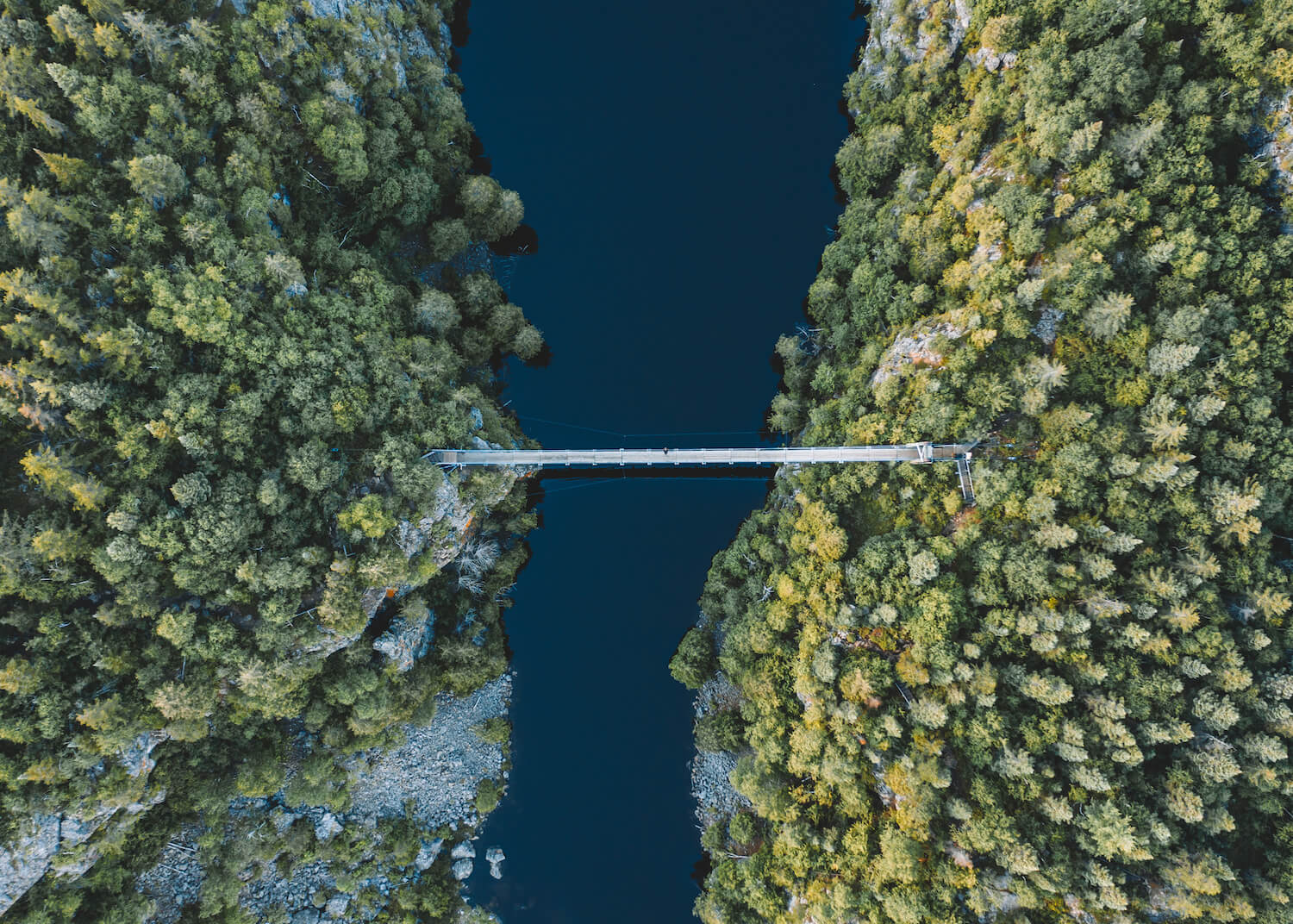
In addition, you will be surprised at how inexpensive it is to compensate your emissions. After a road trip across Canada, we donated to the organization and it only took 11 trees and $35 to offset our emissions. It is also possible to donate double the amount to take an even more positive action for intergenerational equity and help fight climate change in the long run.
What’s great is that each offset is recorded in the donor registry. “Every compensation is geo-referenced. It tells us in which research block the trees are located,” explains Sylvie Bouchard. In the boreal forest, it takes about 7 trees to trap 1 ton of CO2 at $28 per ton. Since each tree is only attributed to one compensation, the trees that you will find in your name in the registry will only be used to trap the CO2 of your journey.
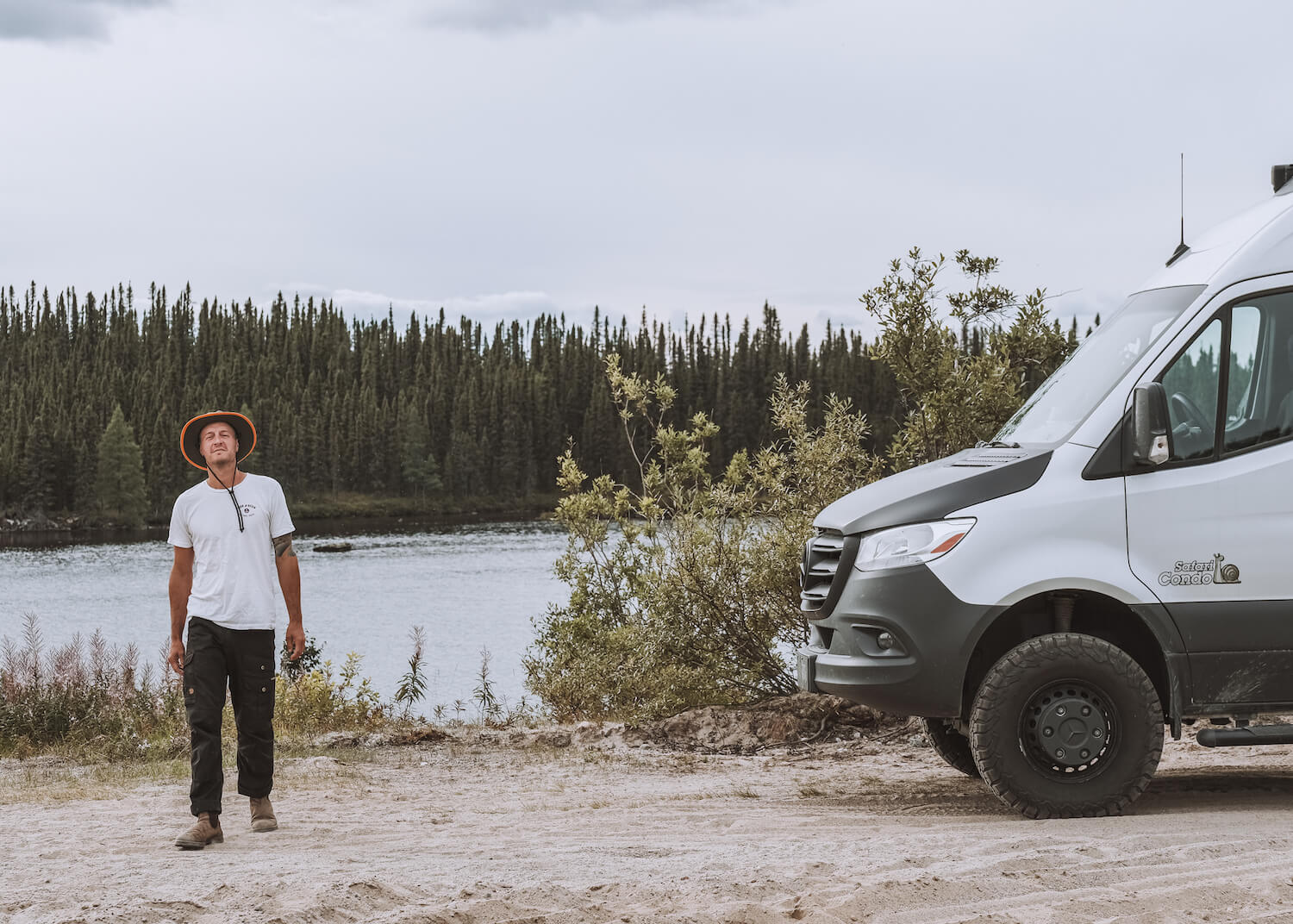
This makes Boreal Carbon a verified and inexpensive option for vanlifers who want to continue to enjoy the road while having minimal impact on climate change. Whether you offset every trip or just once a year for all your travels, every individual action counts. We know that the vanlife community is environmentally conscious and we believe that offsetting emissions by donating to the organization is a great way to apply the leave no trace principle for future generations.




